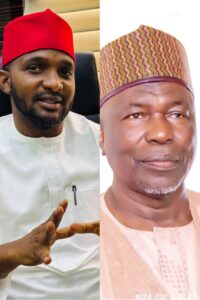
By Safiyanu Abdulhamid Makeri
Unemployment rates have been a growing problem in Nigeria for years. In 2018 the National Bureau of Statistics (NBS) reported that 23.1% of people working age were unemployed. A steep rise from 14% just two years earlier. By the end of 2019, it was almost 24%. One would think that things couldn’t get much worse, but then came COVID19 and a nationwide lockdown.
The outbreak has resulted in many businesses shutting down and many more downsizing. Resultantly, Nigeria’s rate of unemployment rose to an unimaginable 27.1% in the second quarter of 2020 – the highest in the history of the country.
Nigeria’s unemployment problem is rapidly getting out of hand, with around twenty-two million unable to work and unable to earn. Unfortunately, Senator Chris Ngige’s, Nigeria’s, Minister of Labour, speaking predicted that the worst is yet to come.
One thing is certain – the rubber-stamp approach to solving the problem of unemployment in Nigeria has failed many times. We cannot expect a different result by doing exactly the same thing. We must adopt a new approach that is not only comprehensive, but also feasible, effective, solution-oriented and practicable.
This starts with training and trusting young people. With the right financial and educational supports, young people can turn these alarming figures around themselves.
To achieve this however, the following measures must be put in place;
1. REDEZINE THE SCHOOL CURRICULUM
Every aspect of the Nigerian school curriculum is outdated. Most of our subjects do not address contemporary issues, nor do they contribute to the mental growth of students. The system is designed to glorify grades instead of knowledge and skills. It is little wonder that few Nigerian graduates lack the skills needed to thrive in the 21st century. Many of those struggling to find work in Nigeria are amazingly graduates.
We must re-design our curriculum to meet modern needs. The new curriculum should replace irrelevant subjects with ones that teach contemporary skills such as critical thinking, communication, creativity, information literacy, independent research, leadership, and digital literacy.
It should also focus on the practical aspect of learning; motivate students to learn; change final year projects from an avenue to display theoretical knowledge to a chance to practice problem-solving. This alone should be the first step for anyone trying to address the unemployment crisis in Nigeria.
2. CAPACITY BUILDING TRAINING FOR THE YOUTH
Nigeria boasts numerous world-class capacity builders who are committed to helping young people fulfil their potentials, but providing such training for the teeming youth is very rare, which is why every graduate depends solely on governments for employment.
Removing the financial barrier that scares a lot of young Nigerians away, will also help bring the best training to those who need it.
The kind of capacity building trainings that Nigerian youth need are practically focused – not one or two-hour online trainings that have no value. They must equip job seekers with the right skills needed to land their dream job(s) or to start their own businesses. Young Nigerians whose aim is to work in a corporate organisation should not be forced to become ‘emergency entrepreneurs’ who cannot manage a business for long before it crumbles, but budding entrepreneurs must be supported also, so that they do not become job seekers, but job creators.
3. FUND ENTREPRENEURSHIP
Many young Nigerians have viable business ideas but face the challenge of capital. I have seen enough of my fellow young Nigerians to know that many will succeed as entrepreneurs if supported financially by the government. Thanks to the Tony Elumelu Foundation and a host of other NGOs that have funded business proposals young people have been able to create more job opportunities for their peers.
The government should follow suit by making more capital available to prospective business owners, whether as grants or interest-free loans.
To this end, all hamds must be on deck to provide a forum that would create the ideas.


